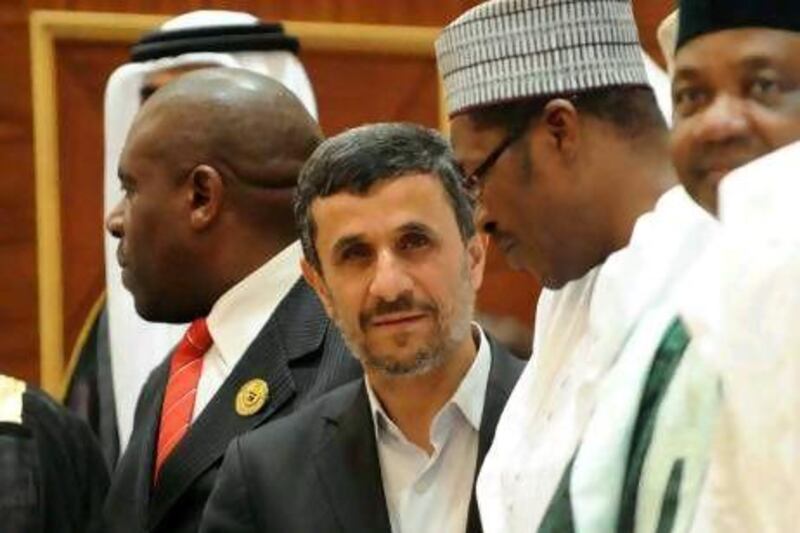Iran's foreign minister yesterday deplored the Islamic Conference Organisation's (OIC) decision to suspend Syria's membership.
Ali Akbar Salehi said the suspension was in breach of the OIC charter and inappropriate since no representative from Syria was present "to discuss and defend its position", Iran's semi-official Fars news agency reported.
The statements of Mr Salehi, who attended the two-day emergency Muslim summit that was called by Saudi Arabia's King Abdullah, were in stark contrast to the condemnation that Syria's president, Bashar Al Assad, faced during the summit.
Only Algeria joined Iran among the 57-member nations in opposing the OIC's decision to suspend Syria.
Most members of the OIC are predominantly Sunni while the Assads belong to the minority Shiite Alawite sect.
"The conflict in Syrian now reflects, to a great extent, a confrontation between Sunni and Shia, in other words, between the Gulf and Iran," Khalid Almezaini, the co-editor-in-chief of the International Journal for Arab Studies, said yesterday. The OIC summit's final communique demanded that the Assad regime "cease all acts of violence" and "refrain from violating human rights, and release all detainees".
"This world can no longer accept a regime that massacres its people using planes, tanks and heavy artillery," said the OIC secretary general, Ekmeleddin Ihsanoglu.
In revoking Syria's membership, OIC delegates cited the "failure of Syrian authorities to reach practical results" from a UN-Arab League initiative.
The summit in Mecca had been portrayed by analysts as a means to bring the Iranian and Gulf positions on Syria and other regional issues closer together.
"The invitation of [Mahmoud] Ahmadinejad from the Saudi king seems to have been a genuine intention trying to discuss their own conflict," said Mr Almezaini.
Before the meeting, King Abdullah raised concerns about sectarian tension within the Muslim world.
"Ethnic and religious diversity has become a burden on us, a cause for rivalry, and a justification for intervention in the affairs of each other rather than a source of enrichment," read the summit's concluding statement, according to the Saudi Press Agency. It also called on states to "stand united in the face of ethnic or sectarian sedition" and added that sectarianism should not be used to achieve political goals.
In addition to Syria, the summit touched on the situation of Rohingya Muslims in Myanmar, who the OIC says have suffered systematic discrimination.
Delegates resolved to introduce a resolution on the issue before the UN General Assembly in September. They also pledged to file a complaint at the UN Human Rights Council and to set up working group within the OIC on the issue, Dina Madani, a public affairs officer in the muslim minorities and communities department of the OIC, said.
"We tried ... to shed light on this issue. The world did take a long time to react," Ms Madani added.
On Mali, where Islamist separatists have claimed swathes of northern territory, the summit deplored "acts of terrorism fuelled by the scourge of organised transnational crimes".
[ foreign.desk@thenational.ae ]
* With additional reporting by Agence France-Presse





